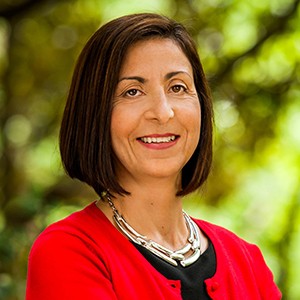Algorithmic Processes of Social Alertness and Social Transmission: How Bots Disseminate Information on Twitter
When: Friday, Feb. 14
Time: 1:15 - 2:45 p.m.
Location: Price Hall 3040

Algorithmic Processes of Social Alertness and Social Transmission: How Bots Disseminate Information on Twitter
When: Friday, Feb. 14
Time: 1:15 - 2:45 p.m.
Location: Price Hall 3040
Social media bots—automated accounts in online social networks— have become pervasive. Among others, they are frequently being used to spread low credibility information on social media, manipulate political processes around the world, and call volunteers of social activism to action. Yet our theoretical understanding of how bots disseminate information on social media is at a nascent state. Though a few studies describe strategic actions used by bots (e.g., targeting of influential actors), they only provide descriptive accounts of such strategies, lacking a higher level of theoretical abstraction to stimulate scholarly knowledge accretion. Further, existing bot models are grounded on the structure of social networks, positing that, with a facilitating network structure in place (e.g., high followership), information can be widely diffused, with significantly less emphasis on a processual view of diffusion. As a result, our understanding of how bots act to diffuse information, especially from a theoretical perspective, is limited. The focus of our study is to provide such a complementary processual perspective.
Leveraging conduit brokerage and the findings of a multiple-case study, we develop a theoretical framework of two intertwined algorithmic processes for how bots disseminate information on Twitter. The first process, algorithmic social alertness, relies on bot activity to curate and reconfigure information. Algorithmic social alertness is significant because it involves action triggers that dictate the kinds of information being searched, discovered, and retrieved by bots. The second process, algorithmic social transmission, relies on bot activity to embellish and distribute the information. Algorithmic social transmission is important because it can broaden the reach of information disseminated by bots through increased discoverability and directed targeting. When integrated in the emergent theoretical framework that we offer, the algorithmic processes of social alertness and social transmission provide a theoretical foundation for organizing and explaining previous research findings, becoming the theoretical scaffolding for stimulating future research on bots in a systematic manner.
Dr. Elena Karahanna is the L. Edmund Rast Professor of Business and UGA Distinguished Research Professor at the Terry College of Business, University of Georgia. Karahanna’s current research examines online health communities, algorithmic coordination, and various types of bots, such as bots on social media and conversational agents. Her research has been published in leading scholarly journals, including Management Science, MIS Quarterly, Information Systems Research, Academy of Management Review, and Organization Science, as well as in practitioner journals such as MIS Quarterly Executive, Cutter Benchmark Review, and Business Horizons. Her research is highly cited with over 27,000 citations as per Google Scholar and three of her articles are among the top 15 most frequently cited articles in the history of the MIS Quarterly. She is ranked 5th worldwide for publications in the MIS Quarterly in the past five years. She was named a Fellow of the Association for Information Systems in 2012 for outstanding contributions in research, teaching and service to the Information Systems discipline.
Karahanna has served as senior editor at the MIS Quarterly, Information Systems Research, and the Journal of the Association for Information Systems (a cumulative total of 11 years as senior editor across the three journals), and serves or has served as associate editor at Management Science, Information Systems Research, MIS Quarterly, Journal of the Association for Information Systems, IEEE Transactions on Engineering Management, and the European Journal of Information Systems. She has also guest co-edited a special issue of the MIS Quarterly on “The Role of Information Systems and Analytics and Chronic Disease Prevention and Management,” a special issue of IEEE Transactions on Engineering Management on “IS Leadership” and a special issue of MIS Quarterly Executive on “New IS Leadership Roles in a Digital World.” She recently co-edited a special issue of the Journal of the Academy of Marketing Science on technology and marketing.
Karahanna also serves in conference leadership roles, including twice as program co-chair for the International Conference on Information Systems, as Doctoral Consortium co-chair for the Americas Conference on Information Systems, and twice as conference co-chair for the Mediterranean Conference on Information Systems. Additionally, she co-founded the Senior Scholars Consortium, the Doctoral Student Corner, and SIGLead, a special interest group on IS leadership. For her service contributions to the profession, Elena received the AIS Sandra Slaughter Service Award in 2015.